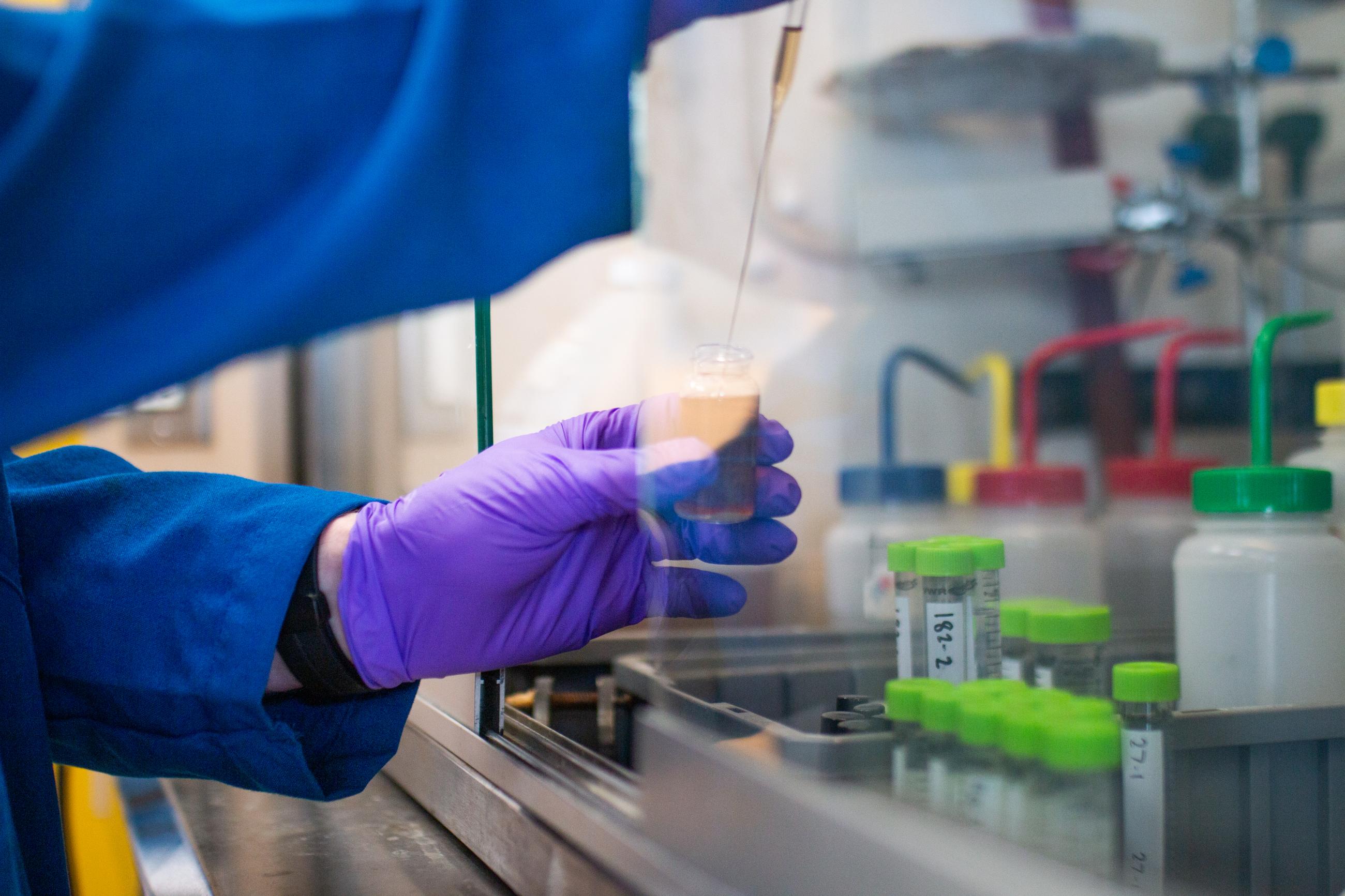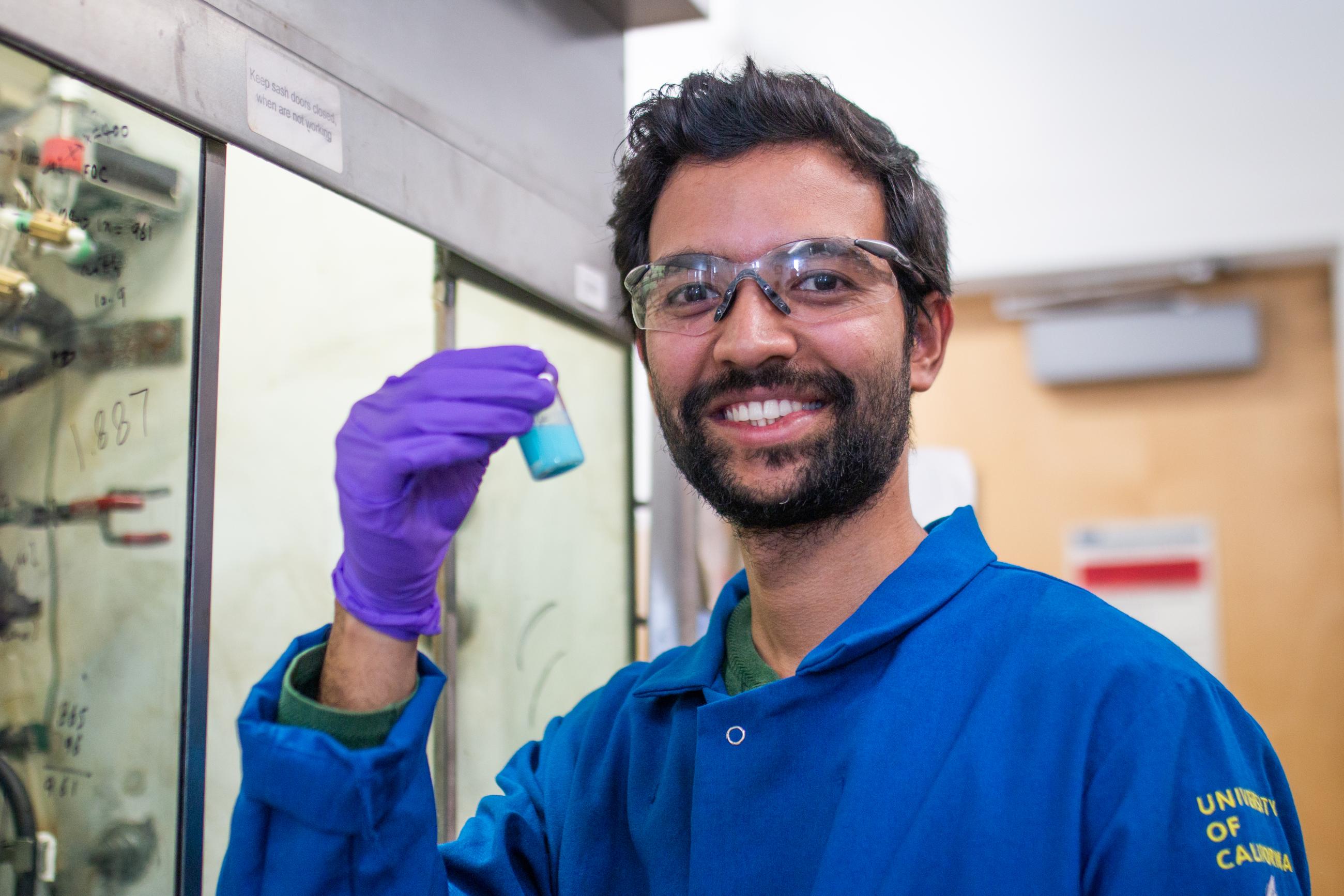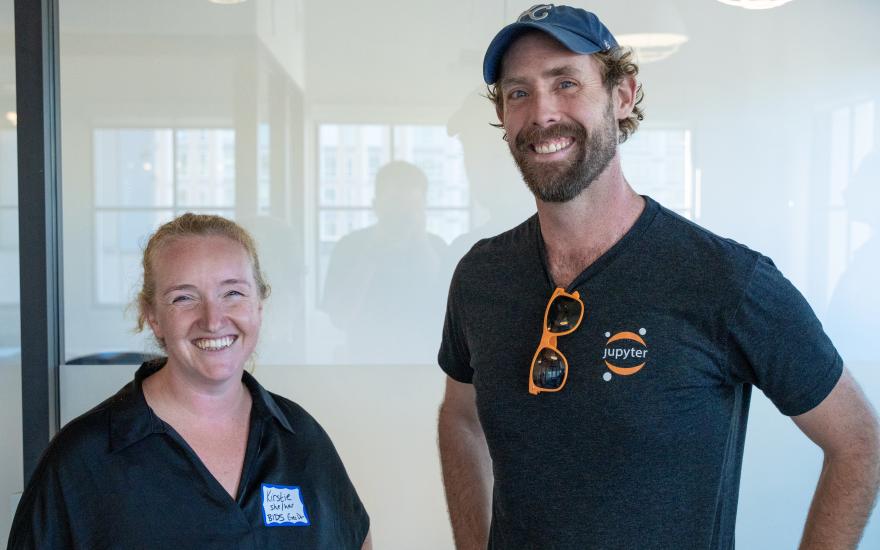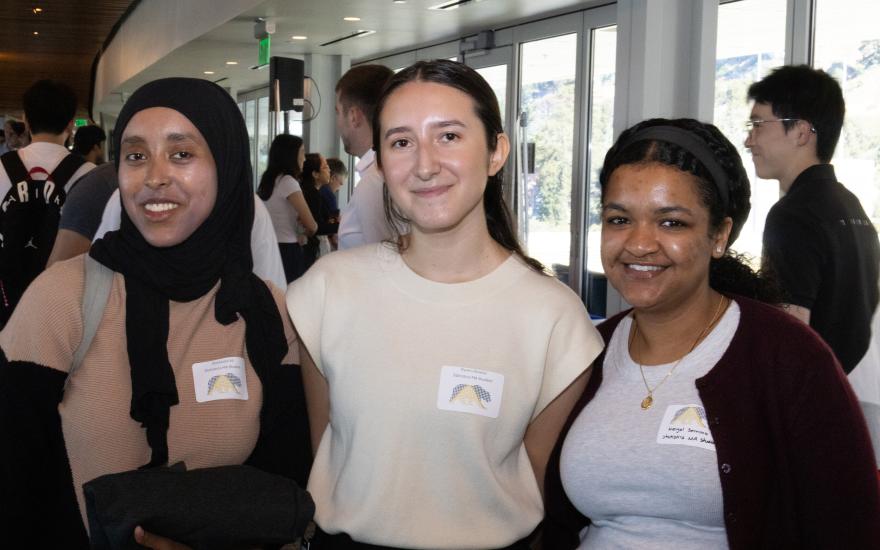Thirty years after a United Nations convention combating climate change entered into force, the dangers of increasing human-caused, planet-warming emissions are on full display. Severe droughts strain water reserves, surging temperatures threaten food supplies and rising sea levels turn whole villages into climate refugees. Scientists warn it will get much worse.
But climate change isn’t the only phenomenon that’s accelerating. The science and technology needed to address its impacts is also rapidly advancing. Using the power of artificial intelligence, material and climate science experts are developing cutting-edge technology to stem the planet’s warming and its related impacts. They are converting water molecules from the air into drinking water, making clearer and faster climate and weather predictions and building better renewable energy systems.
"This space is really growing," said Aditi Krishnapriyan, a UC Berkeley College of Chemistry assistant professor in chemical engineering and member of the Bakar Institute of Digital Materials for the Planet (BIDMaP). "We're in an age where we can advance science with machine learning methods, while also leveraging a lot of new insights in developing these methods."
“This is a really fruitful area that has a lot of potential to have a big impact on the world,” said Krishnapriyan. Her research uses machine learning, physics and chemistry to solve renewable energy, climate and drug discovery problems.
That growth and possibility will be evident this month at the AI and Physical Sciences for Climate Innovation Symposium. Starting March 26, the two-day event will convene some of the world's leading climate and computing experts and academics, like Krishnapriyan, to learn from and engage with one another about the future of this field.
The event is organized by BIDMaP and Climate Change AI (CCAI), organizations aimed at pioneering and harnessing artificial intelligence to combat the climate crisis. It will take place in-person in Sutardja Dai Hall in Berkeley, Calif., and will be available for viewing via livestream.
“I'm hopeful that this event will lead to greater discourse between communities that don't often find occasions to talk together,” said David Rolnick, co-founder and chair of CCAI and a speaker at the event.
“There's been a surge of interest in this area within both academia and increasingly the private sector. It's seen as a time of great innovation and growth,” said Rolnick, a McGill University assistant professor in computer science. “There is potential for having a significant impact upon a field that's young enough to be malleable and mature enough to be impactful.”

Using AI and physical sciences to address climate change
Experts at the symposium will speak about how they are using artificial intelligence to develop materials. Aionics Chief Executive Officer Austin Sendek, whose startup discovers and brings to market new materials for energy and climate solutions, will speak on a panel about how the next phase of this work could be influenced by big data and large language models.
The event will also highlight how AI can speed up scientific discoveries in labs and how AI is being used to understand and estimate future weather and climate. Rolnick and Animashree Anandkumar, a computing and mathematical sciences professor at the California Institute of Technology, are keynote speakers.
The agenda is stacked with industry and academic trailblazers like Rolnick, Sendek and Krishnapriyan.
Berkeley College of Computing, Data Science, and Society Dean Jennifer Chayes, BIDMaP Co-Director Christian Borgs, BIDMaP Co-Director and College of Chemistry Professor Omar Yaghi, and Meta Fundamental AI Research Team Research Director Larry Zitnick are just some of the other influential speakers at the event. William Collins, laboratory director of the Earth and Environmental Sciences Area at Lawrence Berkeley National Laboratory and professor in Berkeley’s Department of Earth and Planetary Science, is another well recognized speaker and participant.

New research directions and partnerships – fast
These kinds of gatherings often lead to new research partnerships and directions, Rolnick said. They are especially important in this moment, said Sendek. AI technology is advancing rapidly. The planet is warming fast. And developing new hardware and materials to apply to the climate crisis can take decades and billions of dollars.
This symposium and similar events allow pioneering experts to quickly “align on the ground truth of what's happening” and make strategic decisions, Sendek said. Scientists have said we have until 2050 to cut our greenhouse gas emissions in half. With a growing population, that’s not much time, he said.
“Clearly there is exponential acceleration happening in two fields. One is in computing power. The other is in AI,” said Sendek, who is also an adjunct professor at Stanford University. “If we can chain the rate of progress in hardware, materials, batteries and other devices to those exponentials, we can do this. If we're going to continue at the same sort of linear rate of progress of the past, we're probably going to fall short.”
Krishnapriyan, who is also an assistant professor in the Department of Electrical Engineering and Computer Sciences, hoped the symposium would be motivating for students who attended, showing them the possibilities of this field. There are opportunities to use machine learning to do interdisciplinary, unique and impactful work, she said.
"This is an exciting time to get into this space," she said.







